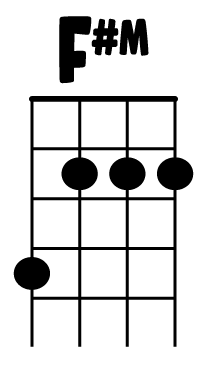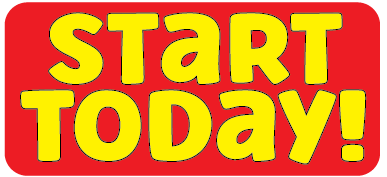This F#m Baritone Ukulele Chord diagram page may contain affiliate links – click here for more info
 F#m Baritone Ukulele Chord
F#m Baritone Ukulele Chord
Although the F#m chord is one of the lesser used chords, it is important for the beginning baritone ukulele student to master this chord shape. With practice, it’s not too difficult to master. Also, this chord shape can be used up and down the fretboard to play many different chords.
Why is this THE MOST Popular Online Baritone Ukulele Course on the Internet?
F#m, like other minor chords, is formed by combining the root note, the flat third, and then the perfect fifth of the major scale. The F sharp major scale consists of the pitches, F#, G#, A#, B, C# D# and E#. For the F# minor chord, play the notes F#, A and C#. The A note is the flat third (minor third) as opposed to A# which is a major third. The fingering diagram for playing the F#m chord on a baritone ukulele with standard tuning (DGBE) is displayed to the left.
Stream 75 million songs on any device. 3 Months FREE! Cancel anytime!
In 1806 the famous composer Christian Schubart said of the F#m chord “A gloomy key: it tugs at passion as a dog biting a dress. Resentment and discontent are its language”.
Although it may have a gloomy feel, many popular songs were written in the key of F#m, such as “Happy Together” by The Turtles, Simon and Garfunkel’s “Mrs. Robinson”, and “Fools Rush In” by Elvis Presley.
For more Baritone Ukulele chords, download our FREE printable chart
containing 21 of the most used baritone ukulele chords!
Want to Become a Baritone Ukulele Master?
Learn to Play the Baritone Ukulele from the Comfort of your Home with Affordable Online Baritone Ukulele Lessons
Affordable!
Fun!
FREE Printable Music Sheets!
FREE Backing Tracks!
100% Money Back Guarantee!
Learning to play the baritone ukulele involves much more than just knowing a list of chords. There are also strumming patterns, finger positions, holding the ukulele correctly, etc. Having someone show you how to play can be a game-changer. Having a knowledgeable mentor or instructor is the fastest way to improve your skills and boost your confidence. Self-taught musicians tend to form bad habits and techniques that prove difficult to break or can actually impede their growth as a musician.
Online lessons can be a fun and cost-effective alternative to taking in-person lessons at your local music store. My local music store charges $15 for half an hour of lessons. One lesson a week would add up to $60 a month! Most online courses are much more affordable.
The online “Beginning Baritone Ukulele Bootcamp” provides everything you need to get started or improve your playing ability.


